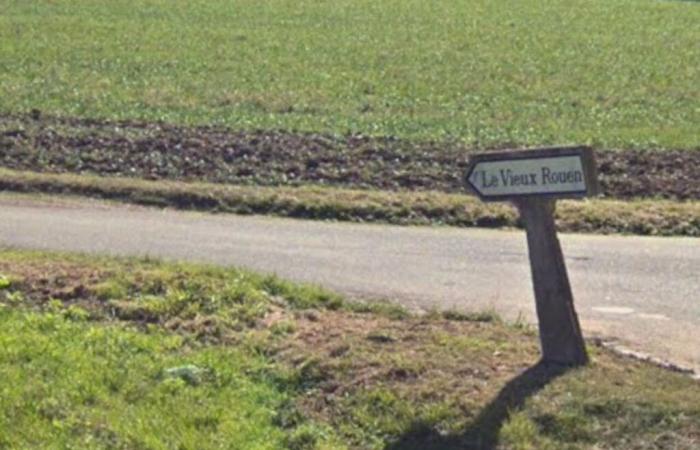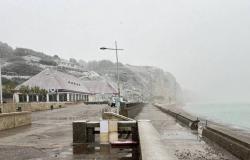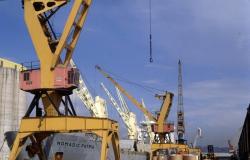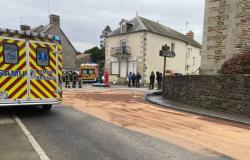
Par
Adrien Filoche
Published on
Nov 10 2024 at 7:42 am
See my news
Follow 76actu
Ce mysterious panel will have brought its share of questions to the editorial staff of 76actu. Posted in the Eure department, between the communes of Saint-Pierre-du-Vauvray and Louviers, this sign points in the direction of a small hamlet attached to the first of the two communes and which overlooks one of the loops of the Seine But then, why this name of Vieux-Rouen? Several hypotheses have reached us.
Rouen in Eure?
To find out more, we first questioned historians from Rouen, who quickly found themselves at an impasse. Then came the turn of Laetitia Sanchezthe mayor of Saint-Pierre-du-Vauvray. Unfortunately, the chosen one has no answer either, that would have been too easy.
Laetitia Sanchez, however, sends us towards another avenue, that of a “great history enthusiast”, Dominique Delafosseformer mayor of Saint-Étienne-du-Vauvray, a commune adjacent to that of Saint-Pierre-du-Vauvray.
When questioned, the former elected official cites a now deceased local historian, Raymond Gérard. “He explains in one of his works 'Saint-Pierre-du-Vauvray and surrounding area' that before the construction of Rotomagus as a regional capital by the Romans, the Véliocasses [peuple gaulois qui s’étendait aux abords de la Seine, NDLR] had identified several places to establish the city of Ratumacos, including that in Eure.
Ratumacos, who later became Rotomagus, among the Romans, finally settled in the current city of Rouen, and not in Eure.
An explanation linked to the Seine?
However, other hypotheses about this “Old Rouen” emerged during our research.
René Lepelley, a French linguist who died in 2011, offers an explanation in his article Gallic toponyms for the passage of water in Normandy: Rouen and the others published in the journal The Annals of Normandy. Hang in there. In this article, the linguist analyzes the etymology of Rotomagos, the starting point for interpreting the name of the hamlet Le Vieux-Rouen in Eure.
The expert explains that Rotomagos “based on the Gallic root rat-, rot-, rit-, which seems to translate as 'passage', to which is added the Gallic noun wizardsoften Latinized into Lag ».
Still according to the linguist, “with the Gallic noun wizards (land, field, town), Rotomagos could be translated as 'the land of the passage or the place of the passage of water'.
No certainty
René Lepelley thus takes the example of the commune of Old-Rouen-sur-Breslenear Aumale, in Seine-Maritime. He writes that “the crossing of the Bresle was made easier by a splitting of the river into several arms, which meet further north, to split again, and this for more than two kilometers”.
Thus, the expert analyzes the element “old” not as a form of the Old French adjective old, old, but as “a product of the Latin noun wowwhich means 'ford', the ford being the passage of a river where one can cross on foot.
For the hamlet of Vieux-Rouen, which overlooks a loop of the Seine and “whose crossing was made easier by the presence of several islands in the river”, René Lepelley uses the same explanation as for the commune of Vieux-Rouen-sur -Bresle and traces this link with the translation “the place where water passes”.
However, other experts translate Ratumacos as a “place of exchange” or even a “market of good fortune”, which may contradict this theory.
Follow all the news from your favorite cities and media by subscribing to Mon Actu.





